Editorial Policies
- Focus and Scope
- Section Policies
- Peer Review Process
- Publication Frequency
- Open Access Policy
- Archiving
- Publishing Ethics
- Publication fee
- A policy of screening for plagiarism
- Declaration of conflicting interests
- Policy of confidentiality and informed consent
- Keyword policies
- Retraction guidelines
Focus and Scope

The New Research of Tuva is peer-reviewed open-access electronic academic journal. Our focus is on comprehensive studies of Tuva – an interdisciplinary field of research in humanities and sciences which covers the history and culture of the Republic of Tuva (Russian Federation) and the peoples that have created its unique sociocultural context.
The journal encourages using new theoretical and methodological approaches in Tuva studies, addressing new problems and finding new perspectives on potential solutions. The journal’s scope is the contemporary issues in the development of Tuva, its culture and society. We publish comparative studies of Tuva and other regions with similar ethnocultural structure (the presence of traditional nomadic cultures). Also welcomed are comparative studies of Tuva and Turkic and/or Mongolian worlds, Slavic, Central Asian and other worlds, and indigenous peoples of Siberia.
The journal welcomes ethnic culture studies in line with Indigenous Methodology (i.e. those conducted by representatives of indigenous ethnic cultures and making use of respective worldview systems).
To enhance the comparativity and expand the dialogue between scholars working on similar issues in various regions of Russia and the world, The New Research of Tuva also publishes contributions on Kalmykia, Buryatia, Khakassia, Altai, Saha-Yakutia, other regions of Siberia, Mongolia and Kazakhstan.
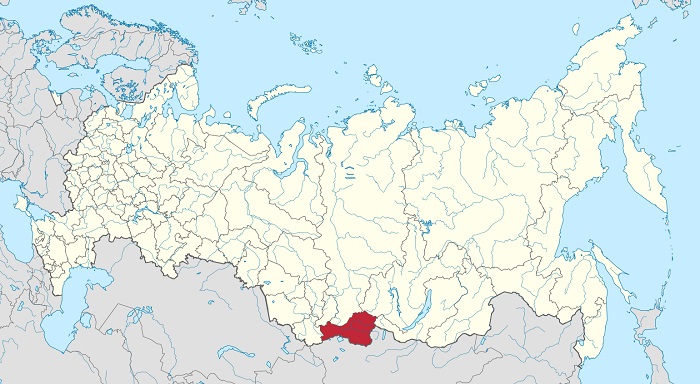
The New Research of Tuva welcomes contributions in Russian and English. The journal is published quarterly.
ISSN 2079-8482.
Since 2016, the journal publishes guest-edited thematic issues.
The New Research of Tuva welcomes contributions in Russian and English – original research articles, reviews, announcements or chronicle pieces. The journal is published quarterly.
Editor-in-chief — Chimiza K. Lamazhaa, Doctor of Philosophy.
To access, the journal, visit http://nit.tuva.asia,
The journal is part of the Tuva studies portal: http://www.tuva.asia/
This work is licensed under a Creative Commons Attribution-NonCommercial-NoDerivatives 4.0 International License.
Section Policies
Main sections
Special theme
Tuva yesterday, today, tomorrow
Encyclopedia of Tuvan culture
Dialogue of cultures
Turkic-Mongolian world
Buddhist World
Voices of Asia
Reviews
Peer Review Process

Articles in English are screened for plagiarism via both online platforms and human check. Only after both tests prove the absence of plagiarism, the article is sent to the assigned reviewer.
Contributions undergo double-blind peer review by two experts (all personal information remains unknown both to the contributor(s) and experts). Accepted articles are assigned to an issue according to the journal's publishing schedule.
Reviewers assess the contributions according to a rubric, which includes a number of criteria: readability of the title; topicality of the article; matching the journal's area of focus; the degree of interest in the topic for both specialists and general readers; the article's compliance with the profile and the scope of the journal; field and contribution type (fundamental, interdisciplinary, or applied, survey, review article); academic novelty; practical relevance of data, conclusions and recommendations; references to reliable research sources; reliance on empirical studies (including those conducted by the author(s)); correct style and formatting of the contribution, its abstract, keywords and references in accordance with the journal's guides.
When starting work on the pre-print, the production editor sends the author the first edited version of his/her contribution together with recommended edits.
The Editorial Board informs the author about the decision upon his/her request. If a paper is not accepted, the Editorial Board sends a motivated refusal. The details of the reviews may be sent by e-mail (on request).
Submission date is an important factor in determining publication precedence. The duration of the review is from 1 to 4 months, depending on the scientific discipline of the work.
Publication Frequency
The journal is published quarterly.
Open Access Policy

This is open access journal, which means that all its content is freely available without charge to the user or his/her institution. Users are allowed to read, download, distribute, copy, print, search, or link to the full texts of the papers, or use them for any other lawful purpose, without asking prior permission from the publisher or the author.
This work is licensed under a Creative Commons Attribution-NonCommercial 4.0 International License.
This is in accordance with the BOAI definition of Open Access.
Archiving
This journal archives the data in the Elibrary.ru (Scientific Electronic Library, Russia), CyberLeninka (Russia).
LOCKSS system has permission to collect, preserve, and serve this Archival Unit.
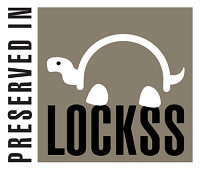
Publishing Ethics
The Editorial Board of “The New Research of Tuva” journal adheres to the international ethics of scientific publications following recommendations of the Committee on Publication Ethics, Publishing Ethics Resource Kit by the Elsevier, and recommendations of the Declaration of Association of scholarly editors and publishers (Russia) “Ethical principles of scholarly publications” .
Duties of editors
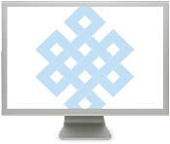
Editors are accountable for everything published in the journal. Editors pledge to maintain the integrity of academic record; preclude business needs from compromising intellectual and ethical standards
Every manuscript is discerned by the editors as a confidential document. Editors and the editorial board shall not disclose the submitted manuscripts without necessity to any persons except for the authors, peer-reviewers, possible peer-reviewers, scholarly consultants and the publisher. All the listed individuals shall not use unpublished data from the submitted papers in their own studies.
Editors process the personal data of the authors in accordance with the Federal Law of the Russian Federation “On the Personal Data” No. 152-FZ of 27.07.2006. Personal information of the author (including the telephone number and e-mail) can be published in the journal only at the author’s permit which specially is requested at the pre-print works.
Editors shall ensure that all published reports and reviews of research have been reviewed by suitably qualified reviewers. Editors shall manage the reviewing processes to encourage the best practices keeping in mind the scholarly interests of the journal with the limited number of specialists; do the best to encourage reviewing by the scholarly centers from different countries.
Double blind review has been adopted by the journal and the editors shall keep the author anonymous to the reviewer and the reviewer – to the author.
Paper can be accepted to publication with two positive reviews. In case of opposite reviews (positive and negative) the Editorial Board shall examine both arguments and accept joint decision on paper with further correcting options and inform the author.
Editors shall be in close cooperation with the reviewers providing them with instructions on dealing with the submitted papers and guidelines on technical, structural and ethical issues.
Editors shall evaluate the intellectual contents of the manuscripts with no regard to the race, sex, sexual orientation, religious views, origin, citizenship and political views of the authors.
Editors should not be involved in decisions about papers in which they have a conflict of interest because of competing, joint or other forms of relations with the author, companies or other organizations related to the paper.
Editors should not reverse decisions to accept submissions or retract the papers unless serious problems are identified with the submission (misconduct of the author, errors or misleading statements). If case of serious concerns about the accepted submissions or published papers the Editorial Board shall initially contact the authors and allow them to respond to the concerns. If that response is unsatisfactory an investigation should be requested.
In case of misconduct of the author is revealed during the reviewing the paper or pre-print works, editors can remove the paper from further reviewing, halt the cooperation with the author and inform his/her institution about misconduct. If misconduct of the author is revealed after the publication (redundant publication, copyright violation, plagiarism, etc.) editors are eligible to retract the publication from the journal, archiving and indexing and report the misconduct to other journals (with redundant publication) and to the employer of the author.
Editors shall be alert to intellectual property issues and work with other editors and publishers to handle potential breaches of intellectual property laws and conventions.
Editor-in-chief, members of the Editorial Board and Editorial Council, reviewers are eligible to publish their papers in the journal, but they cannot benefit from their positions. All articles (including articles of guest editors) are subject to the procedure of peer-reviewing and are selected according to the plan of special issues.
Editors are willing to consider cogent criticisms of works published in the journal and ready to review papers discussing the published manuscripts. Authors of criticised material will be given the opportunity to respond.
Editors shall respond promptly to complaints including those addressed via the Association of Scholarly Editors and Publishers (Russia) which the Editor-in-Chief and the founder of the journal is honored to be the member of.
Changes in editorial policies (in any item) shall be promptly declared on relevant pages and “Announcements”.
Editors are taking all reasonable steps to ensure the quality of the journal, recognizing their mission as a part of wider professional community not only of scholarly research area but also professional practices of scholarly editors. Journal is aiming to keep the high standards of scholarly publications and plan further education and training for the editors.
Duties of the reviewers

Peer reviewers of the journal acknowledge that expert opinion helps the editors in decision-making and are in close cooperation with editors in many issues including ethical ones.
Peer reviewers agree that any paper sent for reviewing is a confidential document. Papers should not be shared with other reviewers of discussed with other experts unless authorized by the Editor-in-Chief.
A peer reviewer who believes his/her expertise or qualification is not enough to evaluate the study in the paper or review would be too late should inform the editor immediately and refuse reviewing.
Reviews must be unbiased. Personal criticism on authors in unacceptable. Peer reviewers must express their views clear and reasoned.
Peer reviewer should not be involved in decisions about papers in which he/she have a conflict of interest because of competing, joint or other forms of relations with the author, companies or other organizations related to the paper.
Peer reviewer should reveal published materials in reviewed paper which have not been cited by the author. Any statements, conclusions or argument that had been exploited before in any publication should be appropriately formatted as citations. Peer reviewer should also draw editor’s attention to significant or partial similarity to any work he/she has seen before.
Unpublished materials that appeared in reviewed manuscript should not be used in peer reviewer’s works. Non-public information or ideas, acquired during the peer review, should remain confidential and not used for personal benefits. Peer reviewer should not accept invitations to review and evaluate manuscripts in which they have personal interest.
Duties of the authors
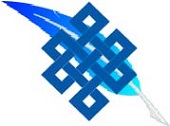
Authors agrees to present article for reviewing only to “The New Research of Tuva” journal. Simultaneous submission of the same paper to other journal (journals) is considered as misconduct and may lead to removal from further reviewing.
Authors submit their own papers to the journal sui juris with no middlemen and should be ready to interact with editors during the reviewing and pre-print process.
Authors agree to submit a new (not published in other publications) original work and if using works and assertions of other authors – to present appropriate bibliographical links and quotations. If any part of the work has been published in other papers, authors should cite previous work and indicate the significant difference of present work from preceding one. Literal copying of own works and/or rephrases are unacceptable, preceding works can only be used as a basis for new conclusions.
If using text of graphical information from other sources, link to corresponding publication or written permission from the author should be present.
Any sort of plagiarism is treated as misconduct and is unacceptable.
If author reveals significant errors or inaccuracies in publication he/she should immediately inform the editor and interact with him/her for earliest retract or correction. If editor obtains information about significant errors from the third side, author should retract the work or fix errors in shortest term.
Authors should acknowledge contribution of other individuals who significantly influenced the study. Bibliographical links to cited materials are compulsive. Information obtained in private way as a result of talks, letters or discussions with third parties should not be utilized without written permission from the source (see also: Policy of confidentiality and informed consent).
Authorship should be limited to those who have contributed significantly to the concept, design, rendering and interpretation of the study. All those who have contributed significantly should be listed as co-authors. Those who has contributed to some significant parts of the research project should be listed as participants. Author should guarantee listing all the co-authors and participants in appropriate lists and getting all the co-authors acquainted with the final version of the paper and approving it to permit the publication. Listing as authors persons, who have not made significant intellectual contribution to the manuscript, is a violation of the copyright and a misconduct as not only it does mislead the readers, but also is treated as a fraud.
Publication fee

Update of the rules from 25.11.2025.
We at the New Research of Tuva journal switch to the APC (article procession charges) model. First things first, submitting a contribution, its primary assessment and peer review are and will remain free for all contributors.
In 2026 we will be offering following conditions for article procession:
- free of charge for all contributors to the Section “Encyclopedia of Tuvan culture”, "Turkic-Mongolian world", "Voices of Asia", “Reviews” (if the review is ordered by the editorial board),
- for authors affiliated with organizations in Russia 25000–60000₽ APC,
- for authors affiliated with organizations in other countries 250–650€ APC.
When working on a paper please make yourself familiar with Author Guidelines. We would also like to draw you attention to Recommendations for papers having two or more contributors.
The exact amount APC is calculated depending on the section; the volume of the text, the complexity of the text design (fonts, highlights); the number of illustrations, tabular data; the language of publication, etc.
To ensure compliance with the journal's thematic priorities and the sections, please send the abstract of the paper (1–2 pages) to the editorial team (editor@tuva.asia), including the names of authors and their affiliation. The cost of editing services can be discussed upon receipt of your article (complete set of all files). The exact cost will be determined after successful review.
Contributions submitted outside special thematic issues, for inclusion in regular sections of the upcoming issues, upon passing plagiarism check, receiving positive reviews and being assigned to an upcoming issue must have their APCs processed first. Their author(s) will receive an invoice and will have to pay 100% of the sum before work on their contribution can be continued (contract can be made with the individual only).
Please bear in mind that paying the APC fee does NOT relieve the contributor from the need to revise the article, correct or specify some of the information therein, including the bibliography, from reading the proofs and other usual kinds of joint pre-print work between the contributor and the editor. Refusing to further communicate and collaborate with the editorial team when the article passes review stage will lead to removal of article from the print queue. The APC paid will then be returned to the contributor minus the sum already spent on preparing the article for print.
The editorial team works with contributors directly and never uses any go-between services or agencies. If it comes to your attention that any physical or legal person offers help in getting your, or anybody else’s, contribution published in the New Research of Tuva for a fee, please know that all such offers are in violation of our editorial policy and thus fraudulent. We kindly ask you to report the case to us by sending an email to editor@tuva.asia
A policy of screening for plagiarism

All the submissions in English are prechecked for plagiarism on PlagScan, in Russian – on “Antiplagiat”. In case of positive response submissions are sent to peer review.
For the check to be deemed positive, the respective system should mark it a t least 85% original. Contributions with lower scores are scrutinized for unrecognized legit quotations, plagiarism and self-plagiarism.
Plagiarism, i.e. submitting a paper fully or partially copied from an existing publication, or borrowing parts of text of any length without due citation, is inadmissible. If a case of plagiarism is discovered and proved, the editors reserve the right to reject the contribution without review, informing the contributor of their decision and attaching the autogenerated originality report.
The contributor may challenge the editors’ decision, if it can be undeniably proved that the fragment in question has been mistakenly deemed plagiarized, or it is a case of “reverse plagiarism” (the source the system has compared the fragment against was itself plagiarized from the contributor’s earlier piece). When appealing against rejection due to plagiarism, contributors must attach scanned copies of their work which prove that the authorship of the fragment in question is indeed theirs.
Self-plagiarism is including fragments of a text published earlier into a later contribution by the same author(s). The journal’s policy considers it permissible if the contribution contains:
- up to 80% of self-plagiarized text from a conference paper published in the proceedings no more than 2 years prior to the submission;
- up to 30% of self-plagiarized text from an article or monograph published no more than 10 years prior to the submission.
Self-plagiarism from a thesis or dissertation. The editorial team of New Research of Tuva follows the basic COPE guidelines on this matter.
When assessing the plagiarism report, we will take into account that in Russia and a number of other countries institutions have implemented a policy of mandatory open-access depositing of the full texts of dissertations, which can account for high plagiarism scores. We also take into account that dissertations are de jure manuscripts.
However, it also has to be remembered that dissertations often include materials published in journals or article collections prior to its defence. Therefore, we pledge to scrutinize every case of self-plagiarism when a dissertation text is proved to be the source.
We accept contributions which contain previously unpublished text fragments (of any length) from a dissertation. In this case a dissertation containing the first description of an experiment or study outcome will not be considered a source of self-plagiarism, even if it is deposited in open access at an official institutional repository with (or without) a license that allows for re-use, such as a Creative Commons license.
However, given the thematic priorities of our journal and its commitment to promote new research and discussing recent data, we introduce a time limit: the dissertation should have been defended no more than 5 years earlier than the submission date. The dissertation text should be referenced in the contribution, with proper citation of the repository (if applicable) and the year of completion provided.
The journal will not accept a co-authored contribution with massive self-plagiarism from one of its contributors’ dissertation (especially including data and research outcomes). We consider it unacceptable to pass what originally was a piece of individual research as a collective authorship contribution.
Declaration of conflicting interests
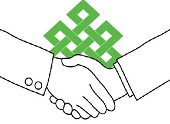
The editorial team strives to assess every contribution by its research merits only. Conflicts of interest arise when judgments made by authors, reviewers, or editors are influenced by their motivations which have no been fully articulated. However, a discovery of a conflict of interest does not mean that a contribution will be automatically rejected.
When submitting a contribution to our journal, author(s) must fully realize every potential conflict of interest associated with it. Any commercial, financial or affiliation-related factor which may lead to a conflict of interest must be covered in a formal declaration submitted together with the contribution. By making the declaration. author(s) pledge to discuss all potential conflicts of interest with the editorial team. The declaration is not intended for publication. By submitting no declaration, author(s) state the absence of any conflict of interest.
The journal team – editors, reviewers and other teammembers – on their part, pledge their commitment to discovering conflicts of interest and informing the Editor-in-Chief of any factor which can potentially lead to such conflict between any of the parties involved (themselves, authors, institutions and/or readers).
Policy of confidentiality and informed consent
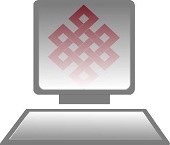
In assessing submitted contribution, the journal team pledges to respect the author(s)’ confidentiality. Reviewers will enjoy the same right.
The editorial team will not disclose information of the contributions (including the submission process, content, assessment status, criticism, reviewers’ comments and final decision) to anyone save the reviewers and respective author(s). Reviewers and members of the journal team pledge not to make public the contributions they have been working with, nor engage in any public discussion of confidential matters, nor use any information from unpublished contributions. Comments made by reviewers should not be made public in any way without explicit permission from the reviewer, author(s) and editor(s).
If the research data in the original contribution contains names of those participating or providing any pertaining information, or photos and other images of people, the author(s) must provide their explicit permission to publish these data and submit it to the journal. The permission file must list all instances of such information in the contribution, and the people involved must be informed of the reasons to do so. If editors doubt that such permission has been obtained, which may lead to a potential conflict of interest (see ‘Declararation of conflicting interests’), the journal team reserves the right to demand that a written statement of such permission be submitted by the author(s).
If personal data of research participants or those providing any pertaining information have been modified to preserve their anonymity, the author(s) must make sure that the modifications do not diminish the validity of their research (by making a modification statement in the text of their contribution).
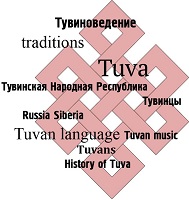
Journal has adopted the recommendations of the Association of Science Editors and Publishers (Russia) so keywords accordingly are treated as a semantic kernel of the paper and a catalogue of basic concepts and categories employed to render the issue. These words must cover the discipline (field of science for the paper), subject and object of research as they are benchmarks for a reader and are used for searching the paper in electronic databases. Keywords can consist of single words or word combinations in subjective case, single or plural. We recommend having up to 10 keywords in Russian and English, word combinations of not more than 3 words. ASEP recommendations for keywords are: employ basic (generic) words among with special ones; avoid overcomplicated words, quotation marks, comma punctuator.
International community of tuvinologists has long-held variants of spelling and translating of some key terms of scientific knowledge of Tuva and Tuvan culture both in Russian and English. These terms have their own background, arguments and scientific traditions.
In December 2017 recognized tuvinologists sitting in Editorial Board of the journal composed and agreed on the list of the most vital terms for tuvinology supporting the concept of the journal.
Examples of journal validated terms in Russian and English:
— тувинцы — Tuvans
— Тува — Tuva
— Тыва — Tuva / Tyva
— тувиноведение — Tuvan studies
— Республика Тыва — Republic of Tuva
— Тувинская Народная Республика — Tuvan People’s Republic
— тувинский язык — Tuvan language
— тувинская культура — Tuvan culture
— тувинская музыка — Tuvan music
— горловое пение — throat-singing
— хоомей — xöömei
— «Хун-Хурту» — Huun Huur Tu
— Урянхай — Uriankhai
— Урянхайский край — Uriankhai Territory
— Салчак Калбакхорекович Тока — Salchak Kalbakhorekovich Toka (Keywords for personalities should include full first name, patronym and family name in subjective case. E.g.: Салчак Калбакхорекович Тока — Salchak Kalbakhorekovich Toka).
Retraction guidelines
Retraction of a published paper has been practiced by this journal since 2018 due to scientific ethics violation by contributors:
1) Submitting a paper that had already been published in another journal and was detected after the paper was published in this journal (at the moment of submission this can be undetected by antiplagiarism systems for multiple reasons: system not covering certain journals, altering the publication text retaining fundamental findings, etc.) (redundant publication),
2) Author submitting paper to multiple journals without disclosing this to editors. Multiple journals might be preparing the paper for publication simultaneously without knowing (redundant publication),
3) Repeated submission of a paper published in this journal (fundamental findings of the publication) to another journal (iterated publication) without significant rewriting and further research.
Redundant, iterated publications apply negative effect to research chops both of author and the journal. Such consent violation is fraught with objurgation of ethic bodies, professional associations, etc., and create reputational damage.
Redundant publications can be reported by the authors, readers; journal can also detect such facts. This would lead to editorial investigation involving authors, editors of counterpart journal, in some cases experts, and eventually to the final decision.
Our procedures in case of revealing grounds for retraction:
1) Editor-in-chief / responsible editor informs the author about the violation, requests explanation and offers to resolve the issue either by author retracting the paper from counterpart journal, or retracting the paper from both journals, or retracting the paper from our journal.
2) If author disagrees with the fact of violation, Editor-in-chief (or responsible editor) presents the Editorial Board with comparative analysis of both publications for discussion. Board should take a decision and render a report.
3) If Editorial Board decides there is no violation, this will be communicated to the author with journal’s apologies.
4) Editorial Board can find the violation insignificant and decide to alter publication in our journal (by inserting references to previous publication of initial findings); this decision will be communicated to the journal that published the paper and to the authors. File of the paper will be altered both on journal website and to archive and scientific indexing databases.
5) If Editorial Board rules to retract the paper, this will be communicated to the author and counterpart journal (with proposal to retract redundant publication) as well as author’s affiliate organization and/or fund if paper was supported by a grant. Next step will be retracting the paper from published issue (by clearing article metadata except for author name and removing article galleys both from its page and entire issue), article page will be updated with reason for retraction, id and date of Editorial Board’s decision; retraction will be reported to archive and scientific indexing databases and submitted to database of retracted articles at Council for Ethics of Association of Science Editors and Publishers of Russia (ASEP) ;
6) Journal reserves the right to establish a period for ceasing cooperation with contributor (3-5 years or indefinitely). This decision should be fixed in the Board report.
7) Journal will not refund any payments by the author.
Journal accepts these rules in accordance with recommendations of Council for Ethics of Association of Science Editors and Publishers of Russia (ASEP), COPE and will be seeking consultations of these bodies if necessary, rising complicated situations for their counseling.



